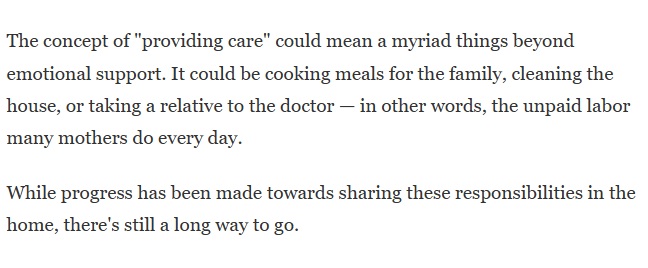Once upon a time, the media delivered news to the public. It was true journalism in its purest form, which involved the reporting and informing of events around us – delivering fact and objectivity were the name of the game. Journalism later became investigative with an intent on serving as a public watchdog and exposing corrupt government officials, business leaders, or even celebrities. Opinion journalism then worked its way into media, which as we know, features a subjective viewpoint. These were usually labeled as columns, editorials, op-eds and so on.
Today those lines have blurred, and there is no one serving as an overseer for the media. It is hard to know what is fact or opinion. This can have an influence on everyday topics, including fatherhood.
What is the news?
As the Internet took a stronghold and replaced the once dominant ways we consumed news, it ramped up society’s ravenous appetite for information. Despite the decline of newspaper, TV and radio, we still want the news more than ever. However, the Internet can also make anyone the media. Whenever someone publishes a blog, posts on social media, raises awareness on crowdfunding sites – they become a part of the media enterprise.
Now, not only is it hard to know what’s fact or opinion, but who is the authority?
Opinion vs. reality
Earlier this summer a story appeared on NPR’s website, “Dads may want to do more caretaking — but then face barriers, one study finds.”
Look at the story’s first three sentences. These opening lines serve as blanket, arbitrary statements coming across as fact. Instead of reporting the news, the writer, in effect, is creating it.
Now look at each sentence and consider your own circle of life. You know full well that dads cook meals for the family. Dads clean the house. Dads take relatives to the doctor. And this is the same type of unpaid labor – just as with moms – which many dads do every year. The writer chose to ignore these facts and craft an opening that aligns with old stereotypes. The writer also chose to surmise that, “there’s still a long way to go.”
The rest of the story
The heart of the NPR story is centered upon a study by Equimundo, which promotes gender equality. The writer included much about the study’s results, but much more wasn’t included.
Such as, how dads and moms have different priorities when it comes to the time they spend with their kids. How more dads work outside the home than moms, leaving much less possibility – and time – for completing chores inside the home. Neither approach to parenting is wrong, they’re just different.
Different priorities and roles within the family (e.g., dad provides the primary income) doesn’t mean that a dad doesn’t care, and a mom is more caring. It doesn’t mean that a dad is neglecting chores, thus leaving moms stuck with more domestic chores. It means most dads are at work during the week and have less time to complete tasks inside and outside the home.
If gender equality is sought, we all need to consider how everyone is depicted – differently and fairly.
Be careful what you say
Public figures also play a part in shaping this stigma, too. The late U.S. Supreme Court Associate Justice Ruth Bader Ginsberg once said, “Women will only have true equality when men share with them the responsibility of bringing up the next generation.” Her advocating of women’s equality is admirable, but it comes as the expense of fathers through a message implying that men aren’t currently doing their part.
Now let’s move to the end of the NPR column. While the writer tried to present factual statistics throughout, she finished with the following excerpts:
So, what now?
- Changing the minds of men means changing how we teach our boys. The study recommends teaching boys from childhood the importance of housework the same way girls are.
- While the study found that both men and women say care leave policies are important to them, women are still more likely than men to prioritize those policies, as well as health care and gender equality policies.
Rather than arbitrarily calling out men as the problem, have we ever considered calling out the marketing around us, which also shapes our attitudes. For decades, consumers have been led down a path to believe that household work is a mother’s domain. This stigma is unfair to moms and creates perceptions that aren’t true.
That story’s ending is another classic example of the lines between reporting and opinion being blurred. A writer came up with subjective conclusions, therefore shaping our opinion of the world.
Erasing the blur, changing with society
While companies create slogans to market their products, or only use women in cleaning ads, for example, society remains convinced that dads haven’t changed, and so the simple solution is to keep the communication the same. The message never changes.
Therein lies the problem: society has changed, as today’s dad is an involved parent. He’s an active parent. With that brings a vocational conviction that stretches beyond serving merely as a breadwinner and secondary parent. Dad is an equivalent family player and meaningful parent in every way, shape, form and instinct – every bit as mom.
The media has great power, and with that comes a great responsibility to choose words carefully and report how the world sees something – not merely one person.


